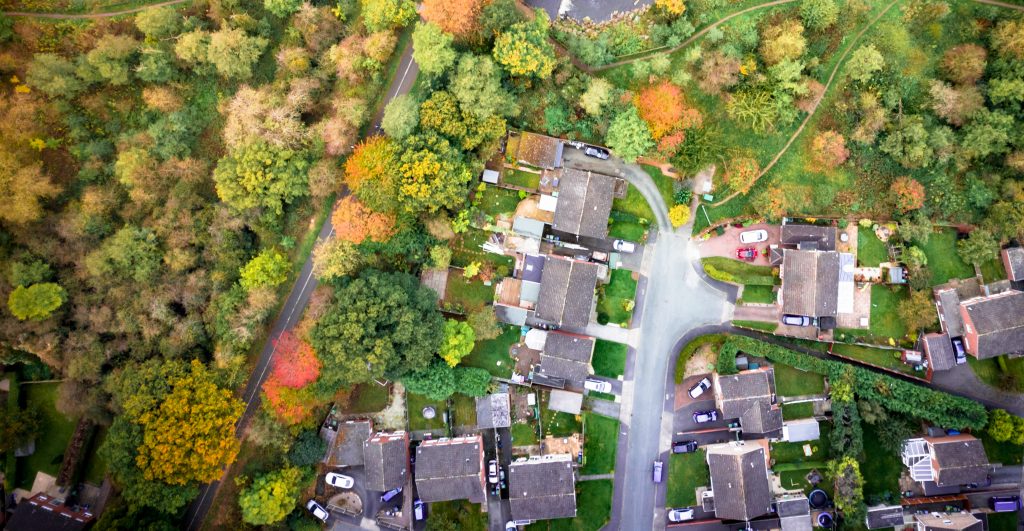CIEEM has now published the outcomes of its research into the relationship between Biodiversity Net Gain (BNG) delivery and people’s wellbeing and its recommendations for the future.
BNG can benefit people directly, for example when communities can enjoy high quality natural surroundings either by BNG being achieved within the development footprint or when a biodiversity offset increases people’s access to, or views of, nature. Indirectly, of course, more biodiversity in the right place has a wider societal benefit of supporting a healthy environment for everyone. But poorly– designed BNG can be detrimental to people’s wellbeing, restricting access to nature with a development site, for example, without adequate alternative provision.
Existing and planned policies should enable BNG to benefit people, and ensure that potential detrimental impacts on people from BNG are addressed. However, for social impacts of BNG to be properly considered it must be in a holistic way that fully understands or addresses how people’s wellbeing is affected.
Thanks to funding from the Esmée Fairbairn Foundation, CIEEM in collaboration with Balfour Beatty, the University of Oxford and the Durrell Institute of Conservation and Ecology (DICE), has undertaken research to determine if, and how, wellbeing should be incorporated more directly into the UK industry’s good practice approach to BNG as outlined in the international ‘People Principles’ originally set out in No Net Loss and BNG (Bull et al, 2018). The report also explores the challenges of doing so and how these might be overcome. Further reports look in depth at how governments and organisations define wellbeing, the extent to which wellbeing policies exist and are used in local planning policies (See here for examples of wellbeing requirements for planning applications), what science says about wellbeing and the full consultation report.
The recommendations arising from the scoping study explore highlight how we need to encourage local planning authorities and developers/consultancies to harness expertise in social impact assessment who can work alongside ecologists to better understand the impacts and opportunities for wellbeing arising from BNG. Existing wellbeing policies in local planning authorities need to be strengthened and, where these are missing, this needs to be addressed. There is a need to build skills and capacity in undertaking BNG-wellbeing assessments. Perhaps most importantly, the ‘do no harm and, where possible, do good’ principle needs to underpin BNG delivery.
Next steps will focus on how to take forward the recommendations in partnership with the wide range of stakeholders who need to be involved.
We are extremely grateful to Project Lead Dr Julia Baker, from Balfour Beatty, and the members of the Steering Group: Kerry ten Kate (independent consultant); Dr E.J. Milner-Gulland (University of Oxford), Dr Joseph Bull (Wild Business Ltd/DICE); Sarah Scott (Defra) and the Research team: Hannah Williams (WSP); Shuo Gao (University of Oxford) and Isobel Taylor (Wild Business Ltd) for all their work on this project.
The reports can be accessed via the links above or the table below:
| Defining and Assessing Human Wellbeing: What The Science Says | A literature review of how wellbeing is defined within the academic literature. |
| How Do Governments Define Wellbeing? | A literature review of how wellbeing is defined by international and UK governments and key organisations. |
| Accounting for Wellbeing Within Planning Applications | A desk-based review of whether planning authorities in England require consideration of a development’s impacts on people’s wellbeing as part of a planning application. |
| Biodiversity Net Gain and Wellbeing: Consultation Responses | A report on responses to this study’s consultations on whether and, if so, how, wellbeing should be incorporated more directly into UK industry’s BNG Good Practice Principles. |
| Biodiversity Net Gain and Wellbeing: Core Recommendations | A summary of the core messages from all the evidence gathered by this scoping study, together with the recommendations. |
Webinars
The BNG and Wellbeing Project team delivered a webinar about the project in November 2020 which can be viewed here.
The team presented a further webinar in February on the topic Biodiversity Net Gain and Wellbeing: Is a Win Win Possible?
